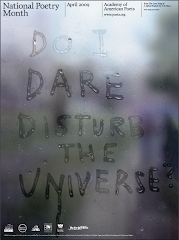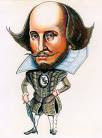In Paulo Freire’s essay “The ‘Banking’ Concept of Education,” he discusses observations on the educational system. He writes about the “banking” concept where educators deposit their thoughts and knowledge into students, who are assumed to be empty receptacles just waiting to be filled. Freire believes this system is built on the assumption that teachers know all, while students possess no knowledge, nor do they process the information they receive; it’s simply a concept of storage and memorization. Comparatively, bell hooks builds off of this concept in her essay “Toward a Revolutionary Feminist Pedagogy.” She uses examples from her own past to cite why it is important for educators to “teach us an oppositional world view…that would enable us to focus clearly and succinctly, to look at ourselves, at the world around us, critically” (79). hooks also comments on the importance of having a feminist pedagogy in place that challenges the 'politics of domination'.
I personally feel that Freire has a very cynical or pessimistic view of education. While I think many times, at least in middle school, there are times when students are required to learn basic rules and concepts that are instilled in all students within one culture, there are many instances when teachers have a profound impact upon students and challenge them to think for themselves. I have always found this to be true in most of the English classes I've had throughout my life, which really encouraged my choice of majoring in English. I also think this goes back to the question of 'why study English?' and the value of English in today's society. I have found it to be the most worthwhile subject in school because I feel that it challenges me to think and form opinions on my own, but also to understand the basic concepts of what it means to be a human and to live, as opposed to finding an area I can succeed in to make a lot of money. In regards to the essays, I was able to relate to hooks in terms of remembering past teachers I've had that really left their mark and encouraged me to be my own person and challenge the norm and question everything I'm presented with. I think this is why education is so valuable, and it would indeed be a shame if, as Freire suggests, it was based entirely on a banking concept of simply receiving and storing information rather than listening and reading and then becoming inspired to do something in the world, as Thoreau often suggests.
Subscribe to:
Post Comments (Atom)













Erin,
ReplyDeleteYour comparison is concise and to the point without eliminating important elements (like essay titles). I think that you've very clearly summarized both authors points and made it clear that hooks built directly on Friere's theory. Nicely done!
I agree that very little of my education (other than middle school) has reflected the "banking" idea... but I wonder how much of that is because our own teachers had been exposed to Friere or theorists like him. I also wonder if this field naturally attracts people who are better able and more willing to view the world at a deeper level than simple monetary success and such things. My own experiences within English studies (both in high school and in college) indicate that the subject draws people who fit this description as well as encouraging that type of thought in those who study it... so I suppose it is something of a cycle or never ending circle of cause and effect... but now I'm just rambling. I hope I've made a point. :P
Abby